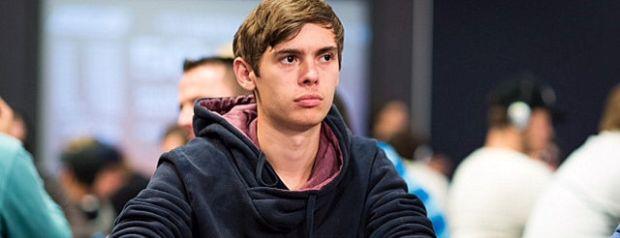What Happens When You Decide to Make Poker Your Career
9 years ago

04 Aug
(Photo: Texasholdem.com)
I distinctly remember a moment in 1999 when I was at University and I realized that I had reach a new level of freedom and enjoyment, studying a subject I enjoyed in a location I was fond of, and not having the constraints of a 9 til 5 job. I knew that I did not have to worry about bosses and managers doing what bosses and managers do, which is to exert their influence to make you do things you don’t want to do. I knew this would not last and, if I am being really honest, despite being at University to improve my chances of finding work, work and the confines of work were the last thing I wanted. I’ve coped with it ever since!
For this and many other reasons, you can see why it is the dream of many poker players to win enough money to class themselves as a professional poker player. The freedom, the money, the lifestyle, and the excitement are an attractive proposition as I sit behind a desk working through papers for someone else's benefit. Aside from the aspiration, let’s look at what actually happens when you decide to make poker your career?

Family Concern
The timing of your decision to become a professional poker player is important. If it is on the back of winning the WSOP Main Event, then any concern your loved ones have will be mitigated by the fact you have about $8 million in your bank account. That said, they probably won’t understand that you can win at a steady rate and they will worry you will think that your big win means you can never go broke when you certainly can.
Their concern is well-intended and in your best interests, but it could be frustrating for you, particularly if your big win was the result of many hours spent working to learn the games and it was not a one-off stroke of luck. This is often the way it is reported in the newspapers, as we will discuss later in this article.
However, if you just wake up one day, read a poker article or two and declare you are now a professional with a small bankroll looking to “run it up” into something huge because you don’t want to work anymore, this is clearly more reckless. It is understandable that your family might feel you're being irresponsible in this situation, sitting at home playing on the computer whilst they go to work keeping a roof over your and their heads. You have something to prove in this instance, even if you CAN make it your new profession pay.

Your Relationship with Money
This is perhaps the biggest change for both good and bad reasons. You need to work out what is the minimum amount of money you need to survive each month without diminishing your life roll. You should have calculated your rent or mortgage, council tax, electric, gas and food bills, clothes, and car costs. That is your overhead. You must be realistic about how much extra you need to make for socializing and how much to add to your bankroll as it is only sensible to keep the bankroll as full as possible to reduce the risk of going bust or having to find a stake to keep you in the game. If you think you cannot win that amount of money, you are premature in trying to go pro.
If you have won a lot of money, you must realise that you can spend it all a lot more quickly if you are buying into (and potentially losing) large buy-ins in one go to poker tournaments. Whilst we marvel at players like Fedor Holzwinning millions of dollars in 2016, I took a look at three poker tournaments and his combined buy-ins for the three events topped $450,000! Yes, they were high roller events, but the cost of three bad beats for Fedor would be more than most people pay for their home!
Money becomes more fluid for a professional poker player and you need to be comfortable with swings. Big swings when there are no other means of income is a whole new animal compared to knowing your pay cheque is arriving the new day, where the feeling of losing a big buy-in still hurts, but is not as earth shattering as it would be if more money was not imminently arriving in your bank account.

You Now Need To Win
Needing to win rather than hoping to win is a significant shift in your psychological approach to poker. This shift can affect your play so you can expect swings to feel worse in the short term until you get used to it. Some people are well-suited to professional poker and hardly notice the difference. Winning is a great anecdote to losing though, and if you have decided to become a professional, I hope this is because you have noticed and built on a distinct and proven edge at the tables. You should have chosen to become professional as a practical rather than aspirational step in your poker career.
Local News Coverage
You may be very well-known on the poker forums as a solid and winning poker player, but it is likely your local news media has not covered your story. If the story gets picked up by the media, expect to see headlines like “Local person quits their job to become a professional gambler” as they will go for the sensational angle that captures their readers' attention rather than a measured story about you cashing in on a honed and developed edge at the poker tables. If you are a doctor, nurse, or teacher, the headline will be even more compelling and will probably be the reason the story reaches the media, rather than a wish to report on your rise in poker.
You are almost guaranteed news coverage if you have a high five figure score or six figure score. The non-gambling world has only one view of poker and gambling where they perceive as a vice that leads to ruin. The fact you have bucked that trend is newsworthy, but as a byproduct of that coverage comes potentially unwanted attention.
This unwanted attention can come in the form of new and returning friends who sense an opportunity for money or excitement. Not every returning friend will have bad intentions but some will, so watch out for that.
Recently poker professional Charlie Carrel was interviewed by Vice.com where he shared what happened when he gained some coverage after a big win.
Suddenly I was getting messages from people I once met at a festival, to people that used to bully me in school, to distant family members that I hadn't spoken to, to complete strangers.”
Not everyone would have had evil intentions behind getting in touch, and I believe most people, most of the time, are 99% happy for people to find success even if they are 1% envious too.

Putting in the Work
When you have enough money to say “no” to activities you do not want to do, this does not necessarily mean you should avoid them. You must continue to stay ahead of the curve, perhaps working with a poker coach to keep you up to speed with game theory and the standard of online play. There will be times when you don’t want to play and you have to knuckle down and grind.
Professional poker is a profession, and as I like to say, there are three streets of action in No Limit Hold’em and not one of them is “easy street”!
I use the analogy that what I am doing now is better than working in a factory and my short spell of working in a factory when I was younger always serves as a point of reference when I am having a bad day, as I’d do just about anything not to go back there!
It is likely that if you are a good poker player, becoming a professional will be nothing but a good move for you. The changes you will encounter must be managed though and you must be mature enough to manage the euphoria of freedom against the necessity to work and grind. This is the only way your status as a professional can be maintained and enjoyed over the long term.






Comments
You need to be logged in to post a new comment